International Community Development Profile: Roziana Kigala Family in Tanzania
In this series, families in the Reaching Children’s Potential (RCP) Demonstration Program in Tanzania explain how their participation improves their lives. Global Volunteers’ RCP Program engages short-term volunteers to help parents deliver essential services improving health, eradicating hunger, and enhancing cognition – with the goal of eliminating child stunting in the Ukwega Ward and throughout Tanzania. Through RCP, families obtain the nutrition, health care, knowledge, technology, and encouragement needed to combat stunting, and to ensure their children can realize their full potential. The RCP Program is a child-focused, parent-driven, family-centered, and community-led comprehensive effort. It begins with pregnancy, and continues through the 18th birthday, with a focus on the first 1,000 days of life. Read Roziana Kigala and Bahati Chota’s interview about the RCP Program here.
First, Roziana, we’d like to learn about your background, where you grew up, and what a normal day is like for you. What do you appreciate most about Ukwega?
Roziana: Both my husband and I were born and raised in Ukwega village. Our education level is Standard 7 and we support each other in everything. I usually wake up at 6:00 in the morning and prepare the children for school and do some domestic activities before going to the farm. We always spend most of our time at the farm. We mainly grow beans and corn, but we also grow avocados, bananas, vegetables, cassava, yams, and potatoes. We get water very close to home. It’s about a five-minute walk there and back. When I get time to relax, I always tell stories with my husband and if I’m alone, I use the time to sleep and read religious books. We love Ukwega because it is our home place, but also it is a fertile land. In that matter, we can’t starve at home.
Can you tell us about your children, Melesiana, Francis, and Selesiana? How did you choose their names?
Roziana: Melesiana is always reading books. Most of the time when she comes home from school, she takes out her books and reads or reviews what she learned at school. Francis is still young so he likes to play a lot with his friends. Their performance at school is good and they keep on improving as the days go by. The RCP Program has been very helpful to make our children very active all the time and they have become very healthy.
Bahati: I chose our children’s names depending on the saint of the day in the Catholic books. All of their names came from the Roman Catholic Book of Saints. In the future, I would like Melesiana to become a social worker like you (Global Volunteers staff) to help the communities. For Francis, I will take him to the technical school for electrical training. I hope Selesiana becomes a nurse in the future. We are working very hard to make sure we provide what is best for our children to make sure they reach their dreams.
“Their performance at school is good and they keep on improving as the days go by. The RCP Program has been very helpful to make our children very active all the time and they have become very healthy.”
– Roziana Kigala, RCP mom
When you learned about the hand-washing stations, what did you decide to do at home? What did you do to convince your family to practice good hygiene?
Roziana: The hand-washing station workshop has been very helpful to our family. We first had a local hand-washing station, but we were not practicing handwashing effectively because sometimes we were not washing our hands with soap and the water we were using was not purified in any way. But after the hand-washing station workshop, I took the responsibility of teaching my family how important effective handwashing is. My husband was very receptive starting on the very first day and we all cooperated to make sure our children adopted the technology. Currently, we are all practicing handwashing with clean water (purified with bleach) and soap. Since we started effective handwashing, it’s been five months that we have not experienced diarrhea or stomach illness. Formerly, we used to prepare a hospital budget every month because we were regularly suffering from stomach fever. Now my family is healthy and happy.
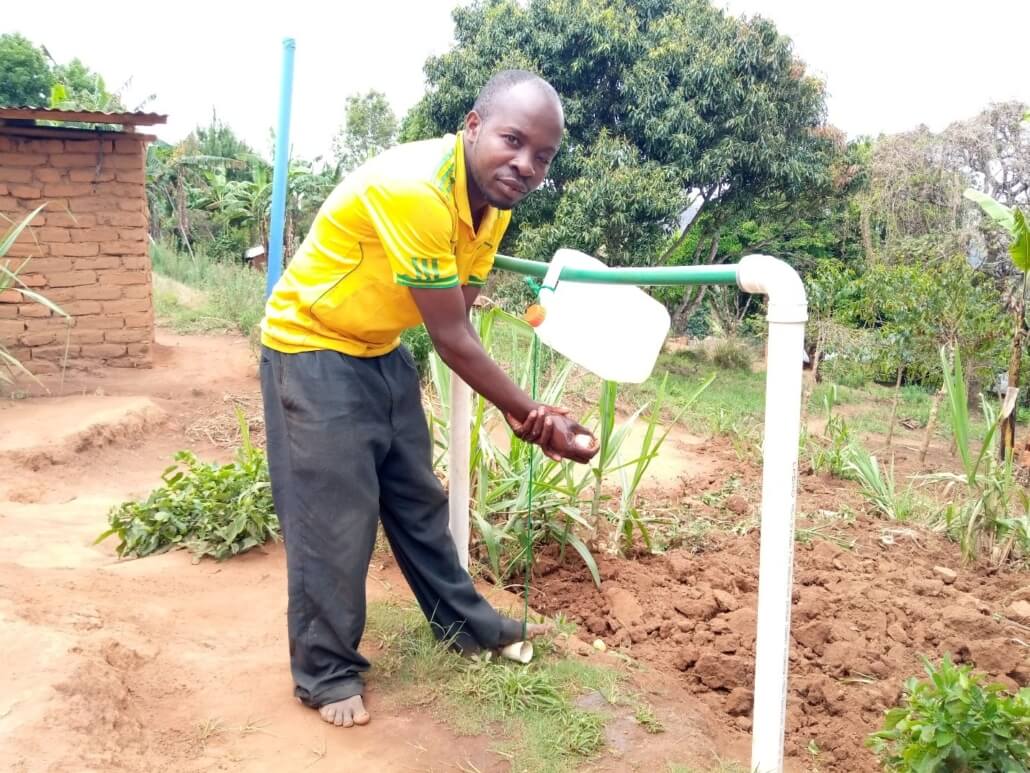
flu. He says he is relieved to no longer have to dedicate a part of the family’s income to doctor’s visits for such illnesses.
Have the Rise Against Hunger meals been important for your family’s nutrition? What is your children’s reaction to the meals?
Roziana: The meals have been very important to me and my children, especially my youngest because she used to be very weak. She did not have an appetite for any food and it was a challenging time, but we are grateful that the Rise Against Hunger meals came into place. Selesiana likes the meals so much and since she started eating the meals, her appetite has come back and she is now eating other foods as well. When cooking the meals, I only add a little salt and oil. Other foods we eat are ugali, beans, vegetables, bananas, potatoes, sardines, and fruits, mostly avocados and bananas. We usually get three meals per day.
My two older children are eating the meals at school and my little one and I are eating them here at home twice per day. My children are very happy and they are always excited to eat the meals. The older ones are going to school early so that they can get the meals before classes. They also have them at the end of the school day. They usually come back from home very full and active. I see that they are healthy and their understanding is increasing.
“The older ones are going to school early so that they can get the meals before classes. They usually come back from home very full and active. I see that they are healthy and their understanding is increasing.”
– Roziana Kigala, RCP mom
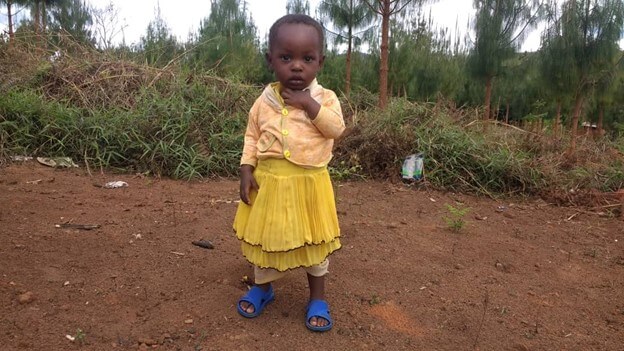
Selesiana’s mother says she had problems eating, but her appetite returned once she began eating the Rise Against Hunger meals. 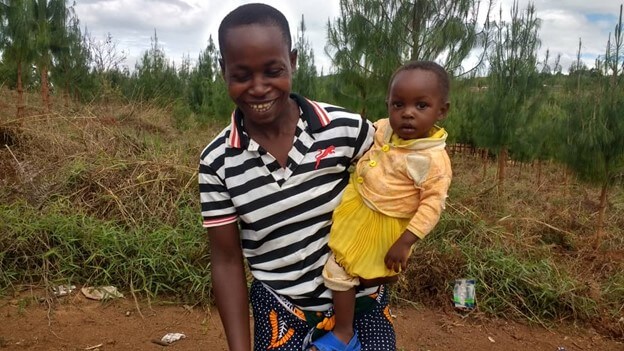
Roziana says it was a challenging time when Selesiana didn’t eat, and she is happy to see that her children are healthy now.
What are the personal changes you’ve made in your life since joining RCP that have resulted in better health for you and you children? What are you doing differently now?
Bahati: We are no longer getting regular diarrhea as we used because of regular handwashing with soap and water. Formerly, we were creating a budget for medicine every month when a child gets sick, but now we have even forgotten when the last time someone had a stomach illness was. Also, we have moved from not drinking boiled water to drinking boiled water all the time. This has helped us be healthy as well.
“Formerly, we were creating a budget for medicine every month when a child gets sick, but now we have even forgotten when the last time someone had a stomach illness was.”
– Bahati Chota, RCP dad
In what other ways are you educating yourself about improving health, nutrition, and cognition?
Roziana: I usually make sure the place where the children sleep is clean and ensure everywhere in the house is clean. Also, I always wash my hands when cooking.
Bahati: I usually put on music and dance with my family so we can be happy together. This has made our children to be free with us.
If you have been using the clinic services in Ipalamwa, how are they different from medical services available before the clinic opened?
Bahati: I have been to Iringa for hospital services, but the services were not as good as the services provided at Ipalamwa General Clinic. It is the best place for sure. Also, the medicines that they give are appropriate to cure the disease. We are also grateful that the quality services are provided for free, which is not the case in many hospitals.
What are your family’s biggest challenges? How do you try to address them?
Bahati: We cannot go into detail with the challenges, but they are always there and they are solvable. But there is not any big challenge, for sure.
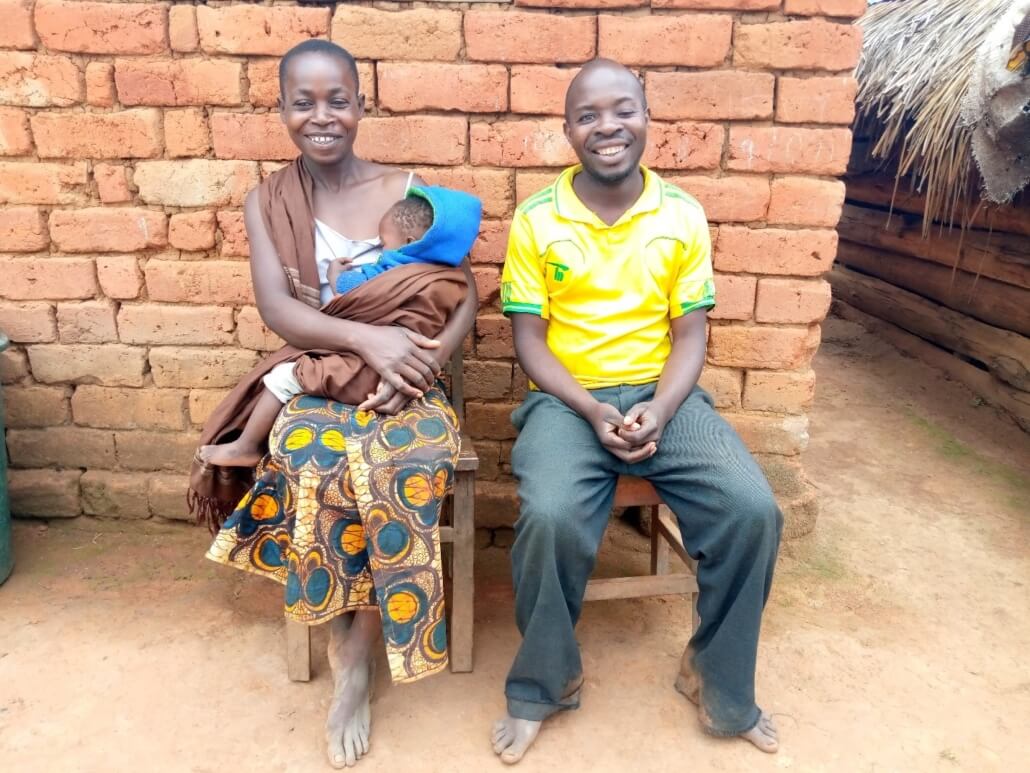
What are you most proud of in your family? What do you hope for in the future?
Roziana: I feel so happy to see my children and they always give me strength to continue on. I’m also happy to see them healthy and that all their basic needs are met.
Bahati: Children are a gift from God so we must rejoice in having them. Recently we have made a plan to have more farmland and plant trees for timber, which will be helpful in our children’s future.
“Children are a gift from God so we must rejoice in having them.”
– Bahati Chota, RCP dad
What values from your ancestors and cultures are you trying to maintain? Do you celebrate birthdays?
Bahati: When a family member dies, other family members have to drink a local medicine made by elder people in the family as a protection from death. But actually I’m no longer maintaining this because I find it to be nonsense.
Roziana: We usually prepare a special food for birthdays.

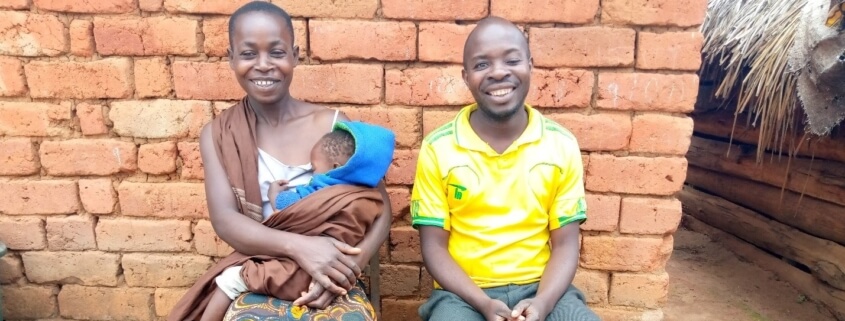
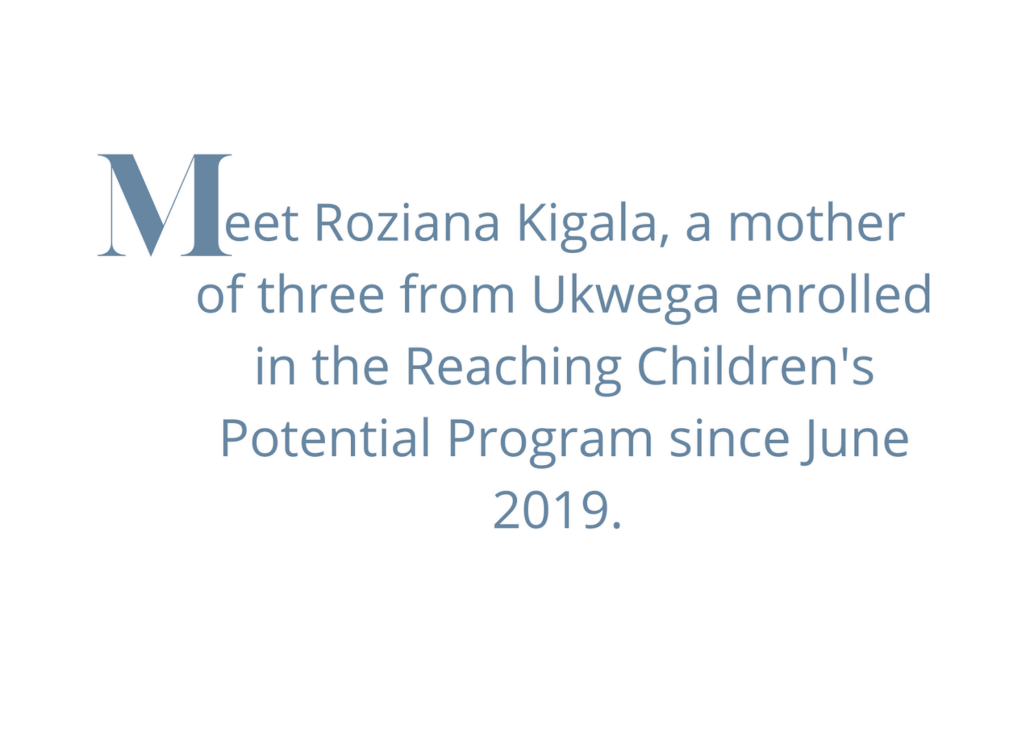
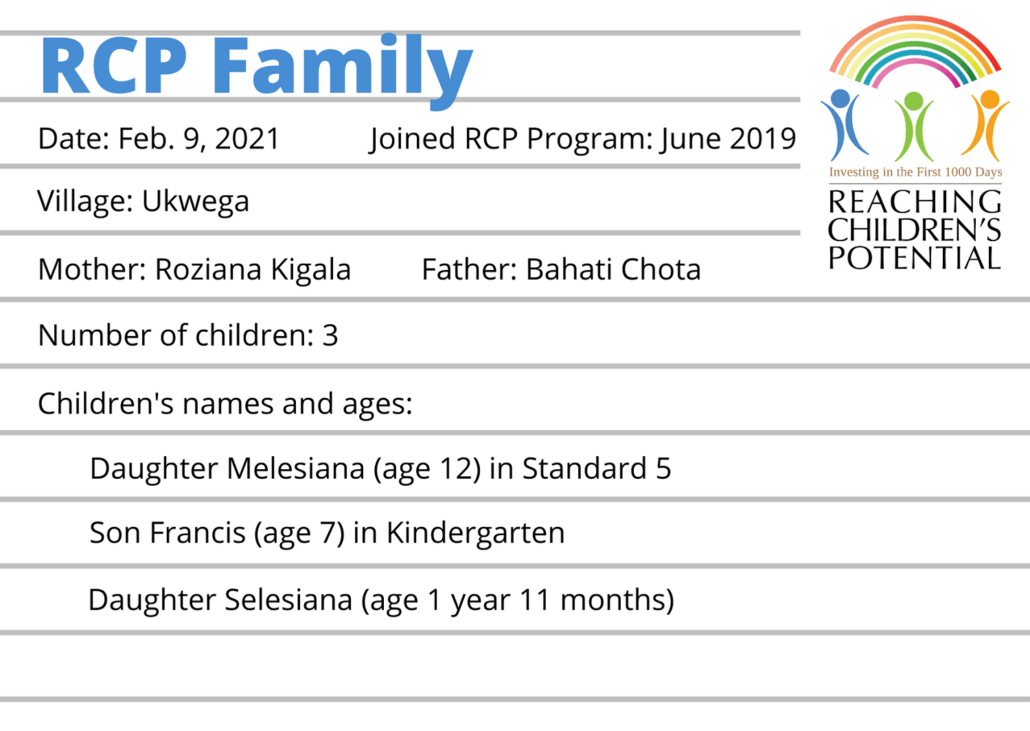


Leave a Reply
Want to join the discussion?Feel free to contribute!